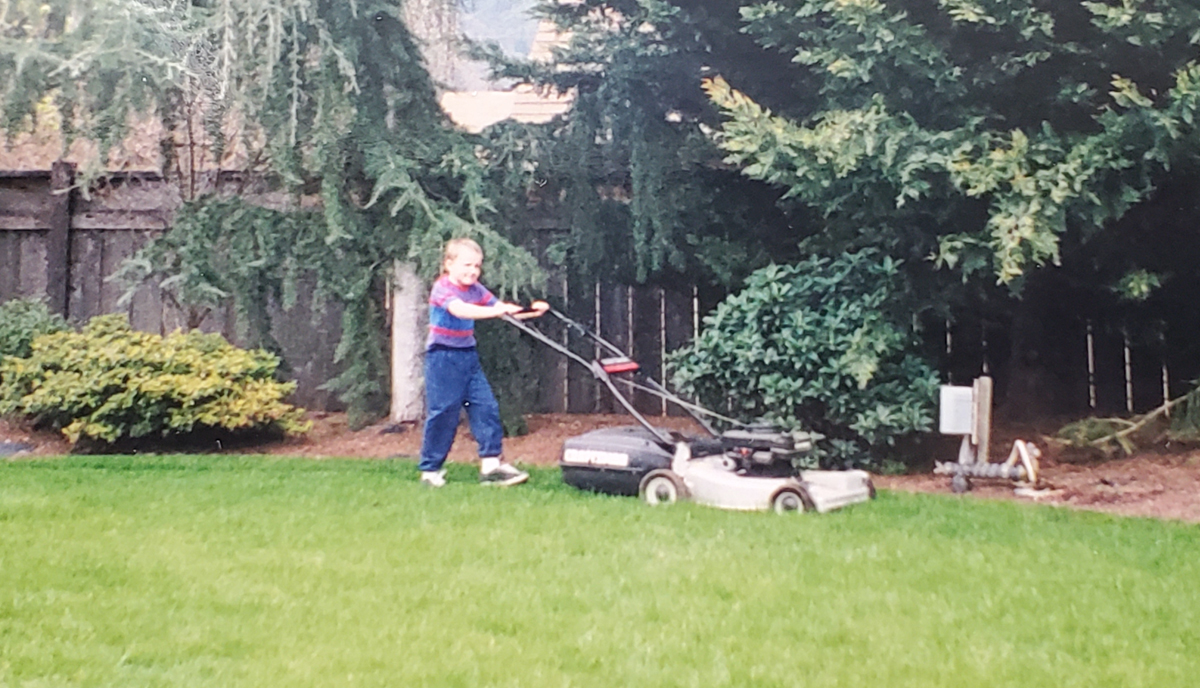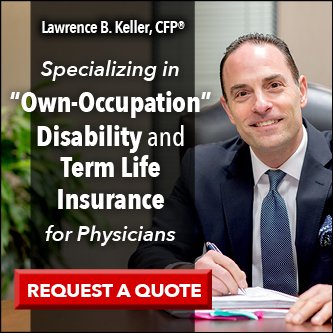We learn a lot of what shapes our lives during our teenage years. As a teen I was an entrepreneur. I mowed lawns, baby sat, taught piano lessons, played guitar and sang in a rock band, helped my grandparents repair their rentals, and even raised money for worthy causes.
Mowing lawns, real manual labor, taught me five important lessons. The first one helped the most to shape my financial future. A little old lady named Mrs. Sleight, who lived a couple of houses down from my great-grandmother who got me the job, taught me this lesson.
1: Save 25% of your income
One day, after mowing Mrs. Sleight’s lawn in the mid-day sun, she brought me a cold drink and we sat down to talk. She told me the secret to her comfortable retirement. Her husband had died not long before and she was reminiscing about the early days of marriage.
Way back in the depression era, people were lucky to have a job. When her husband was working, they made it a point to save 25 cents every time they earned a dollar. It’s only a quarter, but that was 25% of their income going to savings.
She said they saved 25% of their income their entire working lives. Social security did not exist when they started their savings plan and they wanted to be self-sufficient in their old age.
Turned out that saving that money and avoiding debt all along the way, set them up with a nest egg that took care of their needs for the rest of their lives. When her husband could no longer mow the lawn himself, they had the money to hire me. They didn’t need to worry about it, because they had saved their whole lives in order to have money in retirement. Whatever they needed, they were able to afford. They lived in a very small house, probably about a thousand square feet. But it was all they needed.
When I got married during my internship year, my wife and I agreed to save 50% of our income. We each earned about the same salary so one paycheck paid the bills and the other went to savings.
Just like Mrs. Sleight, our savings rate put us in a comfortable position when I retired at age 54.
2: There is money to be made if you are willing to look for it
When I got the idea to mow lawns to earn a little money, I started with no clients. Back then, there was no internet, so I started beating the pavement and jobs started materializing.
When I noticed a yard that had long grass, I saw it as an opportunity for a potential client. I would knock on the door and ask if they would like to hire me to mow their lawn. Most turned me down, but some were happy to have me mow their lawn.
None of the jobs I got were advertised. No one had a sign out looking for someone to mow their lawn. But when presented with the opportunity to hire me, some of them said yes.
Years later, when I lost my job prospect right before the end of my residency (The full story is in my book The Doctors Guide to Navigating a Financial Crisis), I used this same concept to find a general surgery position. I wanted to work in Oregon, near our families. So I hit the road and contacted every surgeon in the parts of Oregon we wanted to live. I found several opportunities that were not advertised. One of those opportunities was the partnership I joined and worked in for twenty years.
3: People will pay you to do stuff they don’t want to do themselves
I remember once seeing a field behind a house in our neighborhood that had dry grass about two feet tall. It was a real eyesore. I knocked on the door and an elderly lady answered. I asked if she would like me to mow her field. She said yes.
It turned out she was not able to do the job herself. I brought my dad’s lawn mower over to tackle the job. It took all afternoon to complete. Periodically she came out and offered me a tall glass of ice-cold tea. We sat on her back porch drinking the iced tea and talking while I took a break.
After that first time, she had me mow that field a couple of times each year. She paid me $25 and a glass or two of ice tea, which seemed like a fortune for a few hours of work, given that minimum wage was $2 an hour at the time. She paid me about triple the minimum wage to do a job she was not able to do. At my age, that was darn good wages!
I found this principle was true even as a surgeon. Doctors do not like to take call. Some were willing to pay me to cover their call for the weekend. When I was young and eager for work, I occasionally took extra call in order to make extra money.
There was a doctor in town who did colonoscopies and was on salary from the hospital. I also did colonoscopies. If he was really busy and got an inpatient colonoscopy consult, he would often call me and asked if I would do the consult. Since he was on salary, he would not make extra income by working that case into his already busy schedule. I, on the other hand, was in private practice and was paid based on my production, so I would get paid for doing the additional case. I was happy to lighten his load.
4: You don’t need all your ducks in a row, or even all the tools needed, before beginning
I found most of my clients already had the equipment needed to mow their lawn. They just didn’t want or were no longer able to do it. All I had to do was hop on my bike and ride to their house. I could use their mower, gas, and edger to do the job.
Many people will not begin their desired venture until they have everything ready. I did not need to own a lawn mower to earn money mowing lawns. You do not need to own an office building to see patients, you can rent one. You don’t need to own a colonoscope to do colonoscopies, you can use the one at the hospital or the surgery center. You do not need to buy an ultrasound to do them in the office, the machine can be rented.
The need to having all their ducks in a row before starting is holding back a lot of doctors. I remember putting the finishing touches on my recent online course, Automating Your Real Estate Investments. I kept finding more things I could add to make it better. I finally just said no one can learn what I am teaching in this course until I pull the trigger. I need to publish the course now and I can add more details later.
So, I released the course. After receiving feedback from those who purchased the course, I made a few changes to improve it. Publishing it forced me to identify what needed to be done and quickly make the changes. People’s lives will not get changed until you hit the publish button. Don’t get stopped by analysis paralysis.
5: Sometimes work can be fun
We have all heard stories about the benefits of loving your work. If you love what you do, you never go to work, you go to play. I got a taste of this, as a teenager, when my family took a trip to visit relatives in South Dakota who were farmers.
One of my cousins’ chores was to mow the lawn. The yard was so large they mowed it with a riding lawn mower. I had never used a riding lawn mower before and it looked like fun. So, I asked if I could mow their lawn. They all thought I was crazy. Who volunteers to do extra chores? To them it was a chore, but to me it was a fun adventure. I couldn’t believe they were letting me drive the riding mower for free. At amusement parks you have to pay in order to have this much fun.
When I was in medical school, I hated my first three clinical rotations.
Pediatrics: I spent every weekend vomiting as I caught every virus those kids had.
OB/GYN: I hated the smells in the delivery room and office where we saw many vaginal infections.
Internal Medicine at the VA: The patients kept coming back month after month with the same ailments. Many of them would not adhere to what the doctor asked them to do or would not take their medicines as prescribed, so it felt like the movie Groundhog Day as I kept playing the same scenario over and over.
I was very close to quitting medical school at that point. Medicine was not turning out to be what I thought I signed up for. My next rotation was general surgery which saved my career. I loved surgery. It felt like we actually made a difference in patients’ lives. If someone came in with appendicitis, I could save their life by taking out their appendix, and they would never have that problem again. For me, fixing stuff was a great feeling. I had found my calling. I needed to become a surgeon and fix stuff.
General surgery, my life’s work, was fun for me right up until I retired. After I was 50, the toll on my body of staying up all night was getting to be too much. I just didn’t recover as well as I did when I was younger. I was also beginning to feel the stress of 28 years of trauma and emergencies. It is very stressful to have someone’s life hanging on your performance. I eventually felt it was time to move on to something less stressful, even though I still loved what I did.
Even the simplest thing, like mowing the lawn, can teach us valuable life lessons. What did you do as a teen that shaped your future? Did you mow lawns like me? Did you have a paper route? Babysit? I’m sure you can look back at those times with fond memories and find valuable lessons that helped you become the person that you are today. Please share some of the lessons you learned in the comments.






This was such a great read—mowing lawns as a teen really does teach valuable financial and work ethic lessons! Learning to manage money early on through hard work sets a strong foundation for the future. Thanks for sharing your experience!
I got my first job shelving books at the library after I had volunteered for several months doing work around the library including shelving books. It was air-conditioned work in a Texas summer which was important to me, as my other choice was home chores and babysitting without AC.
I landed 2 of my best jobs as a physician as a result of volunteering at the free clinic and as a preceptor in a reading program for low income kids. People notice when you show up and help cheerfully.
Austin, yes people notice when you help them. Going the extra mile has a lot of benefits and that extra mile is not very crowded. Thanks for sharing.
4th year medical student and aspiring surgeon.
My twin brother and I, along with our friend, started a lawn mowing business in 8th grade. We continued to mow lawns until we graduated high school. Every check we made went directly to the bank. By the time we were ready to go to college we had each saved around 10k dollars. This isn’t a lot of money but the lessons learned during those years were invaluable. We learned to save, we learned to be entrepreneurs and most importantly the learned the value and reward of hard work! Our friend became a dentist and my brother is a chemical engineer/business owner.
Thank you for the read, we have so much in common!!
I suspect this story is common to a lot of professionals.